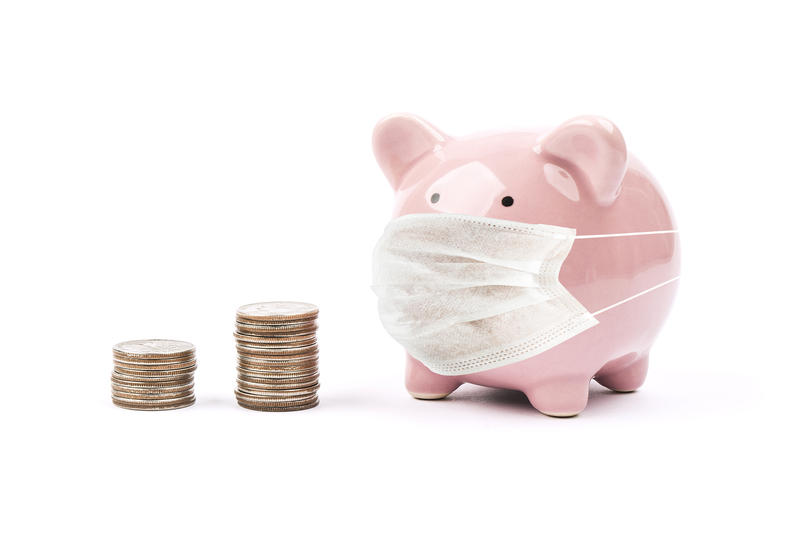- May 1, 2020
- Posted by: Jonathan
- Category: Economics, Finance & accounting, Personal finance

The world is on edge due to COVID-19, but that doesn’t mean your finances need to suffer.
The coronavirus has completely uprooted our lives and, in a matter of weeks, changed the way we conduct our day-to-day routine. Let’s take a closer look at how you can, and should be, keeping your finances in order as the COVID-19 situation develops around the world.
Review Your Monthly Expenses
Do you have Hulu, Netflix and cable? If you use one more than the other, consider canceling the others to reduce your monthly expenses and keep more cash in your pocket. Now is a great time to look at all of those expenses and ask yourself “Do I really need this?” Pull out your last few months of credit card statements (or review your spending categories on Mint or Personal Capital – which you SHOULD be using!) and think about how much you’re saving while sheltering in place. Notice there aren’t those weekly manicures or restaurant charges adding up? Maybe they can be cut out or reduced all together?
Use Your Emergency Fund
This is what you’ve been saving for. If you lost your job, have unexpected medial expenses due to COVID-19, or if you’re just not sure what’s going to happen next, this is what your emergency fund is for. Don’t be afraid to use it, this is definitely an emergency and that’s what it’s there for.
Use COVID-19 Resources
If you have been laid off, furloughed or had a reduction in hours then take steps to mitigate the long-term financial damage. Submit an unemployment claim and certify for weekly benefits. Some offices are overwhelmed so you may have to be patient. The CARES Act is a relief bill that was passed by Congress to help: Stimulus checks (to those who qualify), extra unemployment payments and student loan deferment are some of the key factors. That potentially small unemployment benefit gets increased by $600 per week. These resources are there to help you, don’t be shy.
Boost Your Emergency Fund
If you’re lucky enough to be able to continue working from home, then consider boosting your emergency fund. After all, it’s better to take action to build your emergency fund before the virus impacts you in any way. Did you get a stimulus check from The CARES Act? Are you saving money on commuting? Or how about that Hulu subscription you cancelled earlier? Stash it away to help weather any storms that might come your way.
Keep Calm And Stick To Your Investment Plan
One apparent impact of COVID-19 is the increased volatility of the stock market. Although it can be tempting to panic and sell your stocks during this time of crisis, that’s not a good option. In fact, choosing to sell your stocks now could result in a realized loss of thousands of dollars. It can be extremely painful to watch the value of your nest egg crumble, but remember it’s not a loss unless you sell. The market will recover. You shouldn’t be touching the money you have invested in the market until retirement, so you have plenty of time to recover. Instead, stay the course. Now is more important than ever to have automatic transfers setup to you IRAs or taxable investment accounts so you can take advantage of dollar cost averaging. You’re buying stocks on sale right now! And while you’re at it, increase your 401(k) contributions by a few percentage points. It may feel like a bumpy ride, but selling your stocks for a 20% loss is not the answer. Evaluate your investment plan and find the willpower to stick to it.



